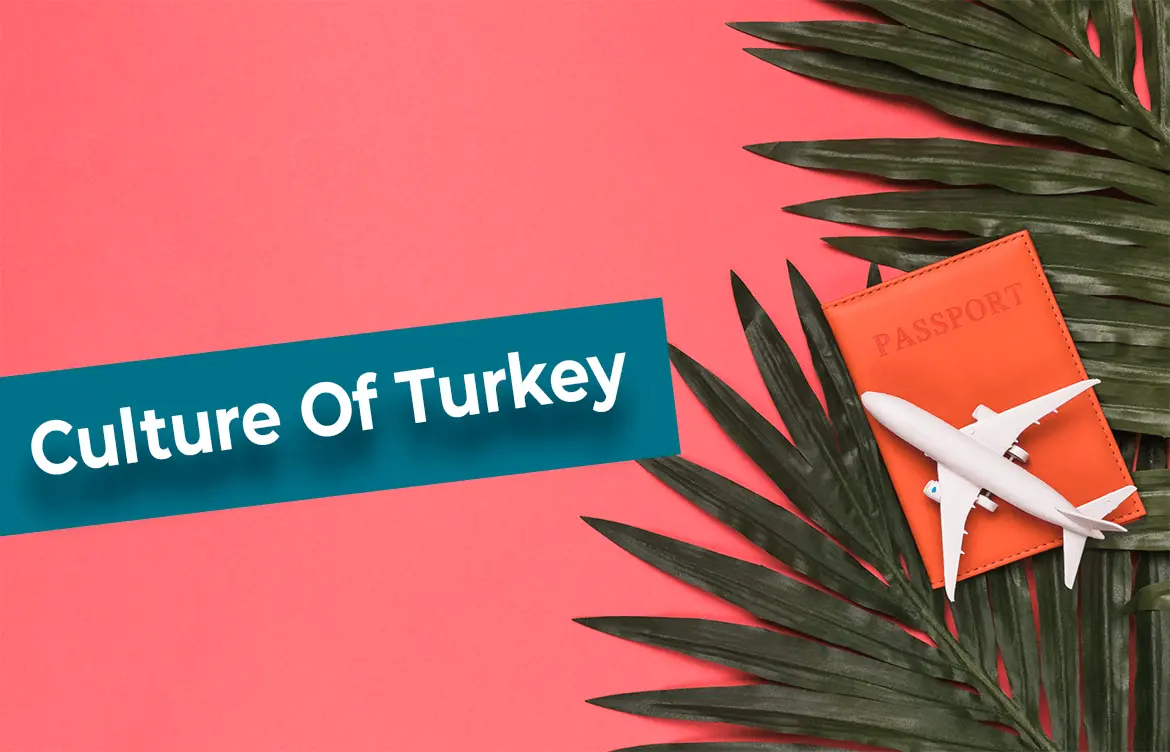Turkish culture is an old and deep-rooted culture and has been present in a wide geography throughout the world and carries the traces of both sedentary and nomadic lifestyles. Due to the geographical location of its distribution area, it has been affected by many cultures and has affected these cultures. The Turkish culture, which was born in Central Asia, has spread to various parts of Eurasia, the Caucasus, the Balkans, the Middle East, and Asia Minor and has interacted with nations here. The Turks have been present in Asia Minor since the end of the 11th century and today this peninsula houses the Republic of Türkiye.
Although 93% of the population lives in the urban areas today, Turkish culture has developed inside the rural areas throughout its whole history. The early Turks used to build tents out of goat hair and live in a nomadic lifestyle in which they’d choose high plateaus in summer and plains in winter. The features of this lifestyle can still be observed within the daily life of Turkish people. Decorating the houses with rugs and carpets, having rich breakfast in case not finding anything to eat for dinner, choosing animal husbandry as a source of main income can be the best examples.
The Turks are one of the rare nations of human history which have been subject to many religions (even Judaism and Buddhism). Yet, the Turks met Islam in the eighth century AD and today most Turkish people are muslim. Before that, the Turks had shamanistic beliefs and today one can still witness some features of it in their lifestyles. To give some examples; when a family member is leaving the house, it is common to throw water after them so that “they would go as water and come back as water”; when someone has a wish, they tie a piece of fabric on a centenary plane tree; and some religious ceremonies are held on the 7th, 42th and 50th day after a family member is lost.
One of the most distinctive features of Turkish culture is the strong family relations. Although the family is usually formed up of parents and children, the relatives see each other very frequently. This strong bond within the members of families can be understood only by looking at the language. The Turkish language has a word for every member of the extended family, even the wives of two brothers and the husbands of two sisters have a name for each other!
As stated earlier, Turkish culture has spread through an exceptionally large area in the world and has been influenced by the nations of these areas. This can be easily seen in its cuisine, which is one of the most popular in the entire world. In today’s Türkiye, different cuisines can be witnessed although it is all considered Turkish. In the west, where the land is quite fertile, the cuisine is based on vegetables, and they are highly dressed with olive oil; meanwhile the north houses some different fish dishes and as there is a huge amount of animal husbandry in the east it contains a lot of meat.
To sum up, Turkish culture contains so many unique features that never cease to surprise people and it is impossible to learn anything about it without paying a visit to the country.
- Why do the Turkish people throw water after someone who is leaving?
So that they’d go as water and come back as water.
- Why is the Turkish breakfast so rich?
The Turkish people used to lead nomadic lifestyles and in the fear of not finding anything for dinner, the nomads had a lot to eat during breakfast.
- When did the Turkish people start migrating into Asia Minor?
The Turkish people has made Asia Minor home since the 11th century.




